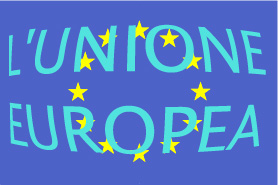Rimani aggiornato:
Iscriviti alla newsletter
Jean Monnet Chair ad personam
The History of the European Integration
Giuliana Laschi
- Learning outcomes
- Course contents
- Readings/Bibliography
- Teaching methods
- Assessment methods
- Teaching tools
- Language of instruction
Learning outcomes
The main aim of the course is to give students a critical and widen knowledge of the European Community role in the International system as well as the sui generis communitarian external relations developed in the last fifty years. The students will gain a widen knowledge of the policy and of the communitarian institutions, which have been the main engines of Community relations, and they will know the actual historiographic debate about the external role of the EU. In the end the students will gain knowledge of the history main tools: The archive documents. This knowledge will be essential also for a widen analysis of the present communitarian documents.Course contents
The course will analyse in depth the History of European integration through some specific issues. In the lectures 1-10 will be presented the European Studies, expounded the main historical stages of the European construction and the main historiographic cores. In the institutional and central part of the course (8 lectures) will be deepened the external role of the European Community and his great changes, from his origin with the Treaties of Rome, through his increasing influence on the politics and economy of third countries; how is evolving the Community place in the international system; the fundamental role of the policies in the relations with the third countries (with a special focus on the environmental policy and common agricultural policy). In the seminar part of the course (2 lectures), will be deepened some items of the external relations of the Community, with the help of experts and researchers.
Readings/Bibliography
During the lectures will be given to the students a bibliography to deepen every analysed issue.
Recommended readings are:
Umberto Morelli, Storia dell'integrazione europea, Milano, Guerini Scientifica, 2011.
Bitumi A., D'Ottavio G., Laschi G. (edited), La Comunità europea e le relazioni esterne 1957-1992, Bologna, CLUEB, 2008.
Laschi G. e Telò M. (edited), Europa potenza civile o entità in declino? Contributi ad una nuova stagione multidisciplinare degli studi europei, Bologna, Il Mulino, 2007. The Historical section and Telò.
Laschi G. e Telò M. (edited), L'Europa nel sistema internazionale. Sfide, ostacoli e dilemmi nello sviluppo di una potenza civile, Bologna, Il Mulino, 2008. the Historical section and Telò.
Laschi G. (ed.), Oltre i confini. L'UE tra integrazione interna e relazioni esterne, Bologna, Il Mulino, 2011.
Laschi G. (ed.), Memoria d'Europa, Milano, FrancoAngeli, 2012.
Teaching methods
The course will have an institutional part and a seminar. During the institutional part there will be frontal lectures by professor, but she will propose facts on which will be debate and deepening. In the seminar, will be analyzed and debated the Community documentation on the basis of main historiographic trends, which will be presented by students in turn, through both an oral account and a written report (max 5000 characters, included spaces). During the course at least two experts and researchers will lecture about a specific issue and debate it with the students, on the basis of a documentation previously proposed.
Assessment methods
The students will be attending if they won't be absent more than three times, will present an oral and written report and will be active in the class debates. For attending students the reports and debates will count a 50% of the final vote. After the introductive section on History of European Integration, students are required to pass (18/30) a wrote exam. At the end of the course, attending students will produce a paper (15.000 characters, included spaces) about an issue decided with the teacher. The paper will count a 25% of the final vote. In the end the students will take an oral exam on the institutional programme, which will count a 25% of the final vote.
Non attending students will take a written exam and then an oral exam. Every exam will count a 50% of the final vote.
[P]olicy
- [L]
Note legali - [T]ermini
d'uso - [C]ontatti
- [A]ccesskey -
Statistiche (riservate)
Copyright 2002 Punto Europa - Progettista -
mail: info@puntoeuropa.it
PuntoEuropa .it è sviluppato seguendo i più recenti
standard del W3 e nel rispetto dell'accessibilità
[Dettagli
su strategie e validazioni]






